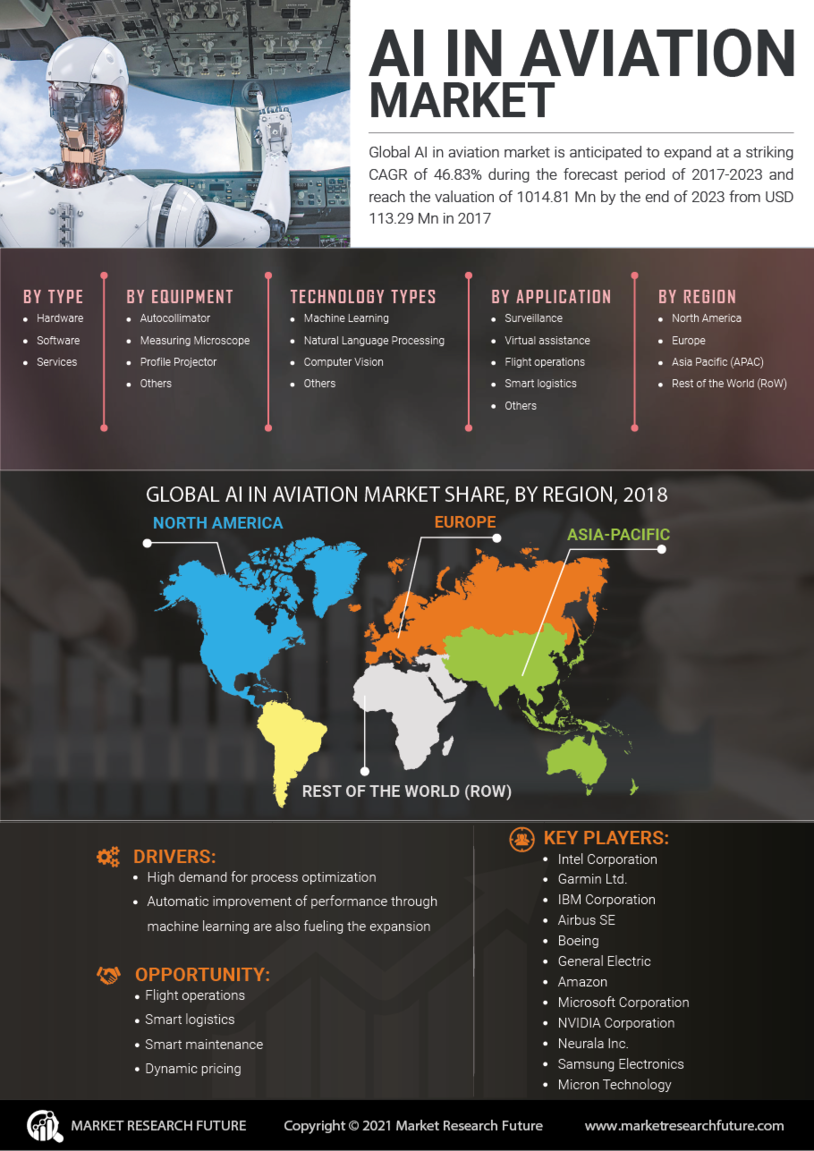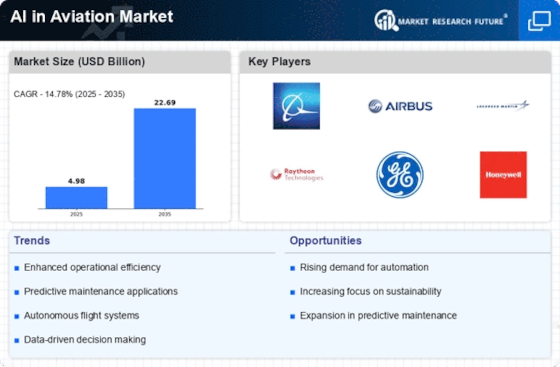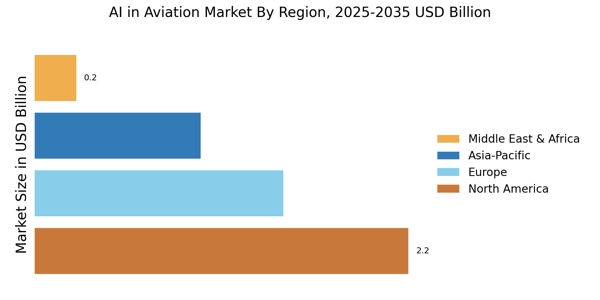Data-Driven Decision Making
The AI in Aviation Market is increasingly influenced by the need for data-driven decision-making. Airlines and aviation authorities are leveraging AI to analyze vast datasets, enabling them to make informed decisions regarding route planning, pricing strategies, and customer engagement. The ability to process and interpret data in real-time allows for agile responses to market changes and passenger preferences. Reports indicate that organizations utilizing AI for data analytics can improve operational performance by up to 20%. As the aviation sector becomes more competitive, the reliance on AI for strategic insights is expected to intensify, driving further investment in AI technologies.
Increased Demand for Automation
The AI in Aviation Market is experiencing a surge in demand for automation technologies. Airlines and airports are increasingly adopting AI-driven solutions to streamline operations, enhance safety, and improve customer service. According to recent data, the market for AI in aviation is projected to reach USD 3.5 billion by 2026, driven by the need for efficient resource management and operational excellence. Automation not only reduces human error but also optimizes flight schedules and maintenance processes. As the industry continues to evolve, the integration of AI technologies is likely to play a pivotal role in shaping the future of aviation, making it more efficient and responsive to passenger needs.
Enhanced Safety and Security Measures
Safety and security remain paramount in the aviation sector, and the AI in Aviation Market is responding to this need with advanced technologies. AI systems are being utilized for real-time threat detection, predictive analytics, and risk assessment, which are crucial for maintaining high safety standards. The implementation of AI-driven surveillance systems has shown to reduce incidents by up to 30%, according to industry reports. Furthermore, AI can analyze vast amounts of data to identify potential security breaches before they occur. As regulatory bodies continue to emphasize safety, the demand for AI solutions that enhance security protocols is expected to grow, thereby driving the market forward.
Personalization of Passenger Experience
The AI in Aviation Market is witnessing a shift towards personalized passenger experiences, driven by advancements in AI technologies. Airlines are utilizing AI to analyze customer data and preferences, enabling them to offer tailored services and recommendations. This personalization can enhance customer satisfaction and loyalty, which are crucial in a highly competitive market. For instance, AI-driven chatbots and virtual assistants are being deployed to provide real-time assistance to passengers, improving their overall travel experience. As airlines recognize the value of personalized services, investments in AI solutions that enhance customer engagement are likely to increase, further stimulating market growth.
Cost Reduction and Operational Efficiency
Cost efficiency is a critical driver in the AI in Aviation Market, as airlines seek to minimize operational expenses while maximizing service quality. AI technologies facilitate predictive maintenance, which can reduce maintenance costs by approximately 25% by anticipating equipment failures before they occur. Additionally, AI algorithms optimize fuel consumption and flight paths, leading to significant savings. The integration of AI in operational processes not only enhances efficiency but also contributes to sustainability efforts by reducing carbon footprints. As airlines face increasing pressure to operate cost-effectively, the adoption of AI solutions is likely to accelerate, further propelling market growth.

















